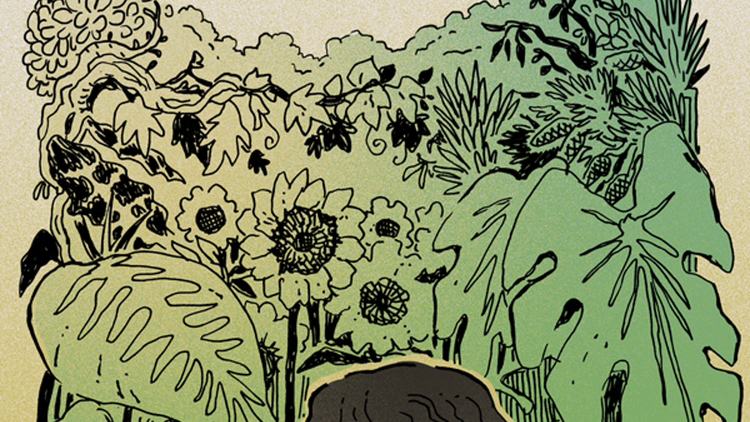Sticking the Landing
Fonda Lee is the author of the epic urban fantasy trilogy Green Bone Saga and the science fiction novels Zeroboxer, Exo, and Cross Fire. Fonda is a winner of the World Fantasy Award, as well as a three-time winner of the Aurora Award, and a multiple finalist for the Nebula Award, the Locus Award, and the Oregon Book Award. Her novels have garnered multiple starred reviews, been included on numerous state reading lists, named Junior Library Guild selections, and appeared on Best of Year lists from NPR, Barnes & Noble, Syfy Wire, and others. Jade City has been translated into multiple languages and optioned for television development. In addition, she has written acclaimed short fiction and comic books for Marvel. She is a frequent speaker and instructor at writing workshops including Viable Paradise and Clarion West. Fonda is a former corporate strategist and black belt martial artist who loves action movies and Eggs Benedict. Born and raised in Canada, she currently resides in Portland, Oregon. You can find her on Twitter @FondaJLee.
Bringing an epic fantasy series to a satisfying close is no mean feat. Far more prominent and successful authors than I have struggled with the task, and there’s a not-insignificant contingent of readers who won’t even start reading or watching a series until its completion is guaranteed. I sympathize; as a consumer, nothing stings worse than getting invested in a story and its characters only to have the ending either not materialize or be a disappointing letdown.
Which explains why the entire time I was writing Jade Legacy, the third and final installment of the Green Bone Saga, I was consumed with a constant anxious obsession to stick the landing. Or, at least, not fuck up. I thought about how many of the third installments in my favorite film series were spectacularly mediocre. Alien 3. Terminator 3. The Matrix Revolutions. The second book in the Green Bone Saga had been met with approval by readers; one reviewer praised it by saying, “If Jade City was on the level of The Godfather, Jade War is The Godfather Part II.”
Which both warmed my heart and scared me shitless because I was working on the trilogy-ending novel and I certainly didn’t want it to be on the level of The Godfather Part III.
So I ruthlessly analyzed series endings, trying to determine how and why they succeeded or failed. Here are three common ways they stumble and what I did to avoid that fate.
Scope Creep, a.k.a. The Ending Is Too Goddamn Long
Many a trilogy author has had to split their final installment into two books because the story simply grew too big. Stories, especially epic fantasy sagas set in secondary worlds, accumulate plot threads the way your favorite coat attracts dog hair. They swell with more characters, more locations, more subplots, and closing all the doors you’ve opened can take a heck of a lot longer than expected. Splitting an unprintably long tome into two novels can work well if there’s a natural division point, but I was determined to avoid turning the Green Bone Saga into a tetralogy. I had a narrative arc mapped out and breaking it up in a different way was going to throw the whole grand scheme into chaos. (Also, as much as I loved these books, they’d already consumed half a dozen years of my life and I really, really wanted them to be done.)
I beat back the threat of scope creep by being hyper-disciplined about the “fence” that I erected around the narrative. My intent since the first book was that the heart of the series was the family saga, which meant that I could be clear-eyed about what was not the focus. The role of magical jade in the longstanding geopolitical conflict between nations, the fate of the Kekonese diaspora community in Espenia, the growth of the Janloon film festival, whether the Twice Lucky restaurant keeps serving crispy squid balls—all of these could’ve sent me on entertaining story tangents if I’d let them, but if a chapter or a scene did not ultimately tie back to the central concerns of the Kaul family and its war with the Mountain clan, then out the window it went.
Go, go, go! THE END
Sometimes, instead of overstaying its welcome, a series careens to a conclusion that feels as if the writer(s) are frantically trying to tie everything up before the curtains come down. (Game of Thrones season eight, cough.) The worst thing about these sorts of final installments, in my opinion, is that they give audiences the sense that the characters are being moved around by the author in order to expeditiously conclude the plot. No new characters or conflicts can be introduced because the story is too focused on sweeping up the floor and turning out the lights.
Part of the obvious solution to this is simply time. I had to ask my publisher for an extension to finish Jade Legacy, which was the longest and most complex of the three books, and I have zero regrets about taking the time I needed to make sure the book turned out the way I wanted it to, even if it meant a slightly longer wait for readers. (Also, there was a pandemic going on.) While keeping in mind the “fence” I talked about earlier, I let the characters and their journeys dictate how long the story needed it to be. And even as the book comes to a close, there is still, I hope, a sense of ongoing concern. Younger characters are rising into power and have their own struggles ahead of them. Not all problems are solved. Life continues past the final page. The words of the author may be over, but tying up every thread makes a story feel like an artificial construct.
Unanswered Questions, Lack of Payoff, or What the Hell Was It All For?
Lost and Battlestar Galactica were shows that had everything going for them in terms of compelling world, premise, characters, and a rabid fanbase, yet ended in controversy because their conclusions took several steps sideways, either by not answering viewers’ questions in a satisfactory way and/or introducing tonally inconsistent, implausible elements.
Readers don’t need everything to be answered, nor do they need to be satisfied with the fate of every character. But every story has a central concern, and you risk reader ire if you either fail to fully address that concern or mislead them as to what it is. I had bent all my efforts as a writer to get readers invested in the individual members of the Kaul family and the No Peak clan. The central concern of the story was the survival and ultimate triumph of that family.
Imagine if I’d ended Jade Legacy by destroying Janloon in a nuclear explosion and scattering the surviving characters to die alone. (Spoiler: I did not do that.) That would not have been a brave feat of literary daring. It would be breaking a promise.
A good story does not have to end unpredictably; don’t worry about readers guessing the ending. What’s far more important is the emotional satisfaction of an author delivering the goods.
In Conclusion…
There are plenty of other potential pitfalls to be wary of when it comes to a story’s concluding act: flattened or unbelievable character arcs, overpowered protagonists, disappointing final battles, to name a few. But the key issues of focus, proper pacing, and narrative payoff are, in my opinion, the foundation to a good series ender.
What I hoped for when I was writing the Green Bone Saga was that after the trilogy was complete, readers would disagree about which was the best volume. No one disagrees about which is the best of the Matrix movies. But you’ll find people who claim each of the original Star Wars films as their favorite of the three. That, to me, in the end, is the mark of a successful trilogy: when each installment stands on its own virtues, but they work together in a way that makes you want to go back to the beginning and experience it all over again.
Jade, the mysterious and magical substance once exclusive to the Green Bone warriors of Kekon, is now coveted throughout the world. Everyone wants access to the supernatural abilities it provides, from traditional forces such as governments, mercenaries, and criminal kingpins, to modern players, including doctors, athletes, and movie studios. As the struggle over the control of jade grows ever larger and more deadly, the Kaul family, and the ancient ways of the Kekonese Green Bones, will never be the same.
Battered by war and tragedy, the Kauls are plagued by resentments and old wounds as their adversaries are on the ascent and their country is riven by dangerous factions and foreign interference. The clan must discern allies from enemies, set aside bloody rivalries, and make terrible sacrifices... but even the unbreakable bonds of blood and loyalty may not be enough to ensure the survival of the Green Bone clans and the nation they are sworn to protect.
Jade Legacy will be available everywhere you get your books on November 30.
Add Jade Legacy to your tbr here. Order it from your local independent bookseller, or order it via Bookshop.org to support independent booksellers throughout the US and the UK. For international shipping, you can try Barnes & Noble. If you prefer audiobooks, here’s a Libro.fm link. You can also request Jade Legacy from your local library — here’s how to get in touch with them. And if you need to order from the Bad River Website, here’s a link that will leverage your order to help get clean water to people who need it.
A note from Sarah: Seriously, buy it. The ending is phenomenal. These books are exquisite. Don't miss out on them.
No matter what you do, please find a way to support Asian American and Pacific Islander communities. There are some resources here to get you started. You can also click here to find ways to support Black communities and people.
In the meantime, care for yourself and the people around you. Believe that the world can be better than it is now. Never give up.
—Gailey


![Guest Host [sarah] Cavar](/content/images/size/w750/2025/03/COVER---Failure-to-Comply.jpg)



Member discussion